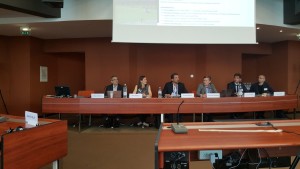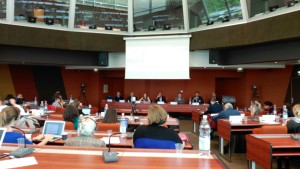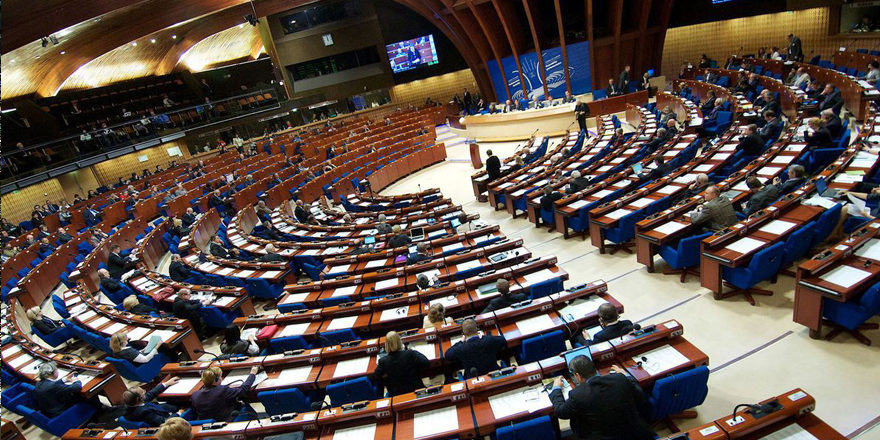Conference of INGOs of the Council of Europe, Strasbourg, 6.6.2016
Introductory statement for the panel “Political activities of NGO’s”

“NGO’s are a nuisance to politicians. How easy it would be to govern without NGO’s criticizing policies and politicians. For the matter of fact, this counts as well for opposition parties.
On the other hand, ruling politicians are always right, they know what is best for their country and for their people. They don’t need anybody to counsel them as they simply don’t make mistakes. Political debates should therefore only be conducted by the politicians, not by the NGO’s, or the press or labour unions or any other interest group.”
…!
This is unfortunately what seem to be thinking some elected politicians also in the member States of the council of Europe. Especially when you are in power, your biggest concern is to lose that power or having to share it with someone. Therefore, some governments or ruling parties have been strengthening their grip on NGO’s, making it impossible for them to exercise their activities. They have been putting inappropriate restrictions on the activities of NGO’s or discrediting them in public speech.
 In the recent years, more and more restrictions have been imposed for instance on receiving foreign funding, especially in Russia and Azerbaijan; this was recently criticised in PACE Resolution 2096 last January;
In the recent years, more and more restrictions have been imposed for instance on receiving foreign funding, especially in Russia and Azerbaijan; this was recently criticised in PACE Resolution 2096 last January;
Developments in Russia (the “foreign agents law”) are particularly worrying because they clearly aim at stigmatising NGOs which advocate on “public policy” issues and receive foreign funding; this was criticised, amongst others, by the Venice Commission, the HR Commissioner and the PACE;
Instead of complying with international standards and the recommendations, the Russian parliament is even considering an amendment to this law, which aims at further expanding the scope of the definition of the “political activities” of NGOs, by covering activities in the area of protection and promotion of human rights;
In Azerbaijan, numerous restrictions were imposed on NGOs receiving foreign funding, in particular through the requirement of registering grants. Several human rights defenders have even been sentenced to long prison terms for not complying with these requirements.
Another threatening phenomenon is the public stigmatisation and demeaning of NGOs receiving foreign funding by politicians in certain member States. (As an example I could point out to Hungary where even though legislation is meeting the criteria of the Council of Europe, there is problems with the implementation of the laws and there obviously is a general mistrust between NGO’s and the Government);
NGOs should be free to advocate issues of “public policy” and thus to provide assistance to policy makers, as well as to receive foreign funding;
States should not impose restrictions in this field and the Council of Europe should keep a close eye on developments concerning the civil society situation in its member States.
A constantly recurrent argument is that NGO’s engage in political activities and aim at the power.
Here lies the biggest misunderstanding, the misunderstanding of Democracy: If democracy means a system of government by the whole population, it means in the end sharing the power with civil society. Democracy needs civil society and in this we find political parties as well as NGO’s and a free press or labour unions.
Democracy is more than organizing free elections. It needs the clash of views, the multitude of opinions, the confronting of ideas. Political parties alone cannot fulfil this requirement, they need the civil society to achieve this.
In my view, NGO’s play a crucial role in policy making. By engaging in the public debate, they help making better laws, they help the Governments focus on the subjects that matter to the people.
Therefore the first step to a good cooperation between politicians and NGO’s is to acknowledge that.
Second step is to adopt legislation that ensures on one hand the transparency of the NGO’s and their independence and on the other hand the possibility to receive funding also from abroad.
Third step is to engage with the entire civil society in the public debate.
The Council of Europe provides help to Governments to set up legislation that enables NGO’s to freely engage in their activities. We have defined the legal status of NGOs, and drafted recommendations in that sense. Now it is up to us politicians, in our national parliaments and also in the CoE to seek that these recommendations are being followed.
No, politicians are of course not always right. And democracy needs a living and free civil society. This is not so easy and needs our permanent concern. It also raises questions like:
“What is the difference between political activities and public policy activities? What activities lead to the assumption of power by NOG’s? Should we distinguish between different types of political activities?”
Maybe today in this panel we can try to find some answers to all of these questions.
